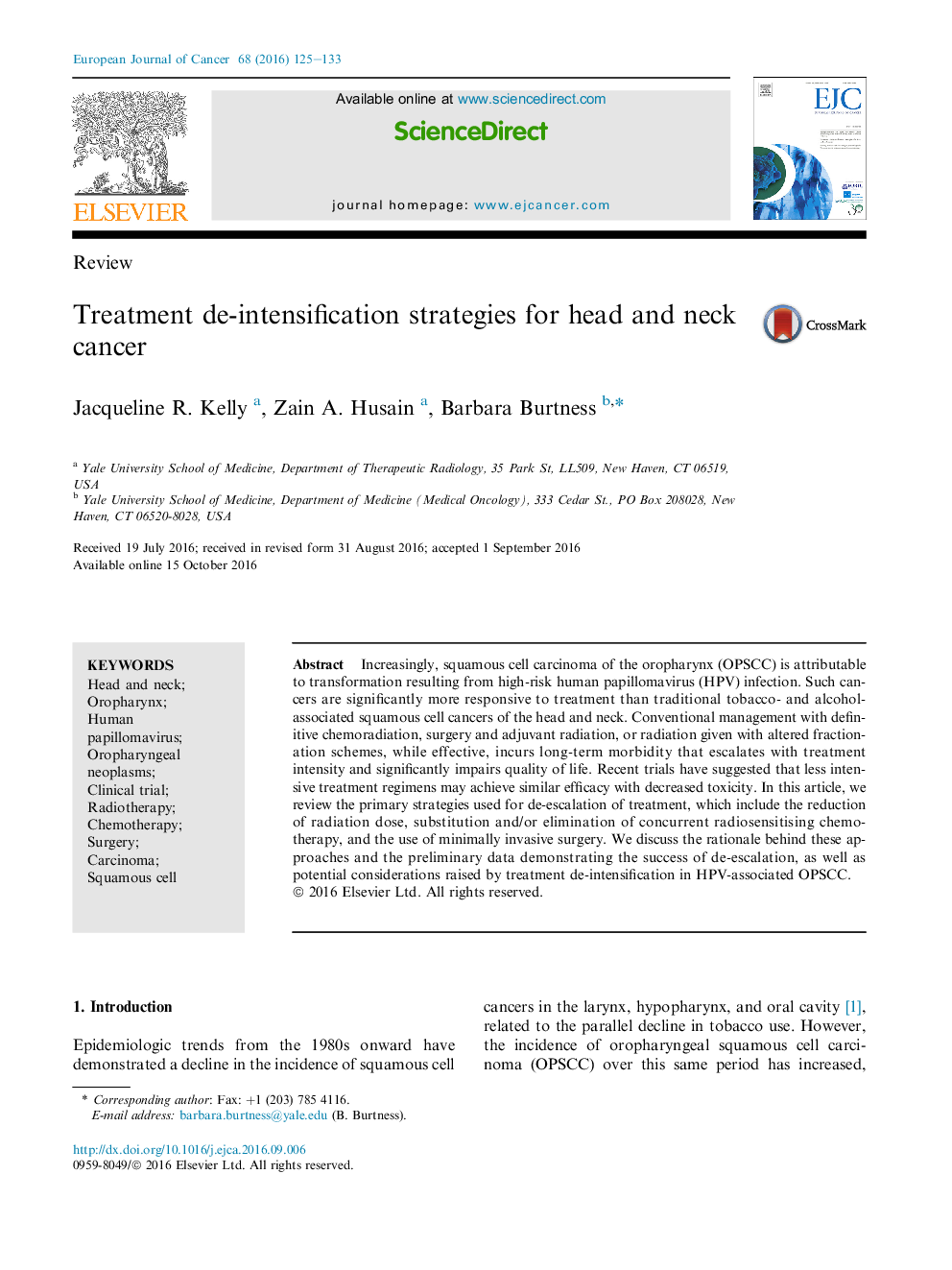| کد مقاله | کد نشریه | سال انتشار | مقاله انگلیسی | نسخه تمام متن |
|---|---|---|---|---|
| 5526559 | 1547066 | 2016 | 9 صفحه PDF | دانلود رایگان |
Increasingly, squamous cell carcinoma of the oropharynx (OPSCC) is attributable to transformation resulting from high-risk human papillomavirus (HPV) infection. Such cancers are significantly more responsive to treatment than traditional tobacco- and alcohol-associated squamous cell cancers of the head and neck. Conventional management with definitive chemoradiation, surgery and adjuvant radiation, or radiation given with altered fractionation schemes, while effective, incurs long-term morbidity that escalates with treatment intensity and significantly impairs quality of life. Recent trials have suggested that less intensive treatment regimens may achieve similar efficacy with decreased toxicity. In this article, we review the primary strategies used for de-escalation of treatment, which include the reduction of radiation dose, substitution and/or elimination of concurrent radiosensitising chemotherapy, and the use of minimally invasive surgery. We discuss the rationale behind these approaches and the preliminary data demonstrating the success of de-escalation, as well as potential considerations raised by treatment de-intensification in HPV-associated OPSCC.
Journal: European Journal of Cancer - Volume 68, November 2016, Pages 125-133
